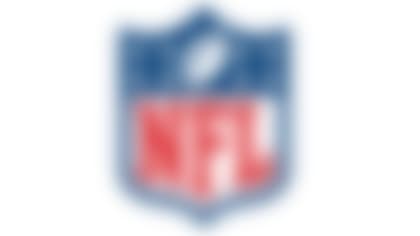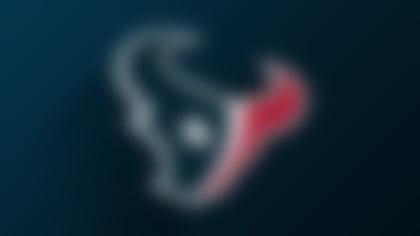The quarterback is a pretty important position in the NFL. I assume we can all agree on that?
There's the obvious fact that he typically touches the ball on every offensive play and sets the tone for that side of the ball (and often for the entire franchise). Also, to win at any level you need to score, and in the NFL the lion's share of points are produced by the quarterback's arm. Consider the numbers from the NFL and NCAA Division I-A (Football Bowl Subdivision) over the past 10 regular seasons (see chart).
If your goal is to win a Super Bowl -- which is at least the stated goal of every team in the league -- then history shows that you need a good quarterback. Not all good quarterbacks will win or even get to a Super Bowl; but it's rare to win a Lombardi Trophy without one.
Consider the Super Bowl-winning quarterbacks over the past 10 seasons: Aaron Rodgers, Drew Brees, Ben Roethlisberger (twice), Eli Manning, Peyton Manning, Tom Brady (three times) and Brad Johnson.
True, Johnson is no one's idea of a Hall of Famer. However, the connection is pretty clear. A good quarterback is important for NFL success, and the position is therefore the most visible, influential and desirable of all in American sport. If you took a few million parents and asked if they'd rather their son grow up to be President of the United States or a starting QB in the NFL, I'm guessing -- if they were being honest -- they'd go for the QB.
So, let's say we agree that the quarterback is the most vital position in team sports. How about we move on to something we can disagree about: Where do good quarterbacks come from?
Most people are pretty sure they know the answer to that question. From the first round of the draft, usually near the top of the round. That's where Peyton Manning came from (the No. 1 overall pick in 1998), and brother Eli, too (No. 1 in 2004). Then there's Roethlisberger (No. 11 in 2004), Rodgers (No. 24 in 2005). Brees was No. 32 in 2001, the first pick of the second round (nothing too shabby about that). Johnson was a ninth-rounder in 1992 (remember when they had a ninth round?), No. 227 overall, but we already know Johnson isn't the cream of the crop. The big confounder in this group is Brady, who's nearly as famous as coming from the sixth round of the draft (No. 199 overall in 2000) as he is for winning three Super Bowls.
Still, Brady is just one data point. A big outlier, sure, but we shouldn't use his success to argue that the top of the draft doesn't routinely produce elite quarterbacks.
Why not?
Because we have other evidence to make that point. Consider the No. 1 overall picks of the past 20 seasons. Eleven of those picks were quarterbacks. Since Matthew Stafford (2009) and Sam Bradford (2010) and are still works in progress, let's leave them aside and consider the remaining nine. We've got Peyton Manning, Eli Manning, Michael Vick and Drew Bledsoe. Are they all justified No. 1 picks? Perhaps. But let's look at the rest of those No. 1s: JaMarcus Russell, Alex Smith, Carson Palmer, David Carr and Tim Couch. If given a chance to go back in time, how many general managers would spend a No. 1 pick on any of these men?
Let's consider a broader sample of quarterbacks, with enough time passed so we can properly evaluate their careers: all quarterbacks drafted during the 1990s. There were 104 quarterbacks drafted during that decade, 20 of them in the first round. Of those 20 quarterbacks, only eight started for the equivalent of five seasons (80 games) or more. Meanwhile, another eight of those 20 had careers lasting for the equivalent of fewer than two seasons. So for an entire decade's worth of first-round quarterback picks, you were just as likely to get a total bust as you were to get a QB with a decent career. That's with a first-round pick.
What does all this add up to?
It's not fair to say that the NFL draft is a total crapshoot. First-round players generally perform better than second-round players, who generally perform better than third-rounders and so on.
But there's a dirty little secret that most people won't acknowledge, or don't even recognize. Selecting a player in the draft is essentially trying to predict the future, and human beings are simply not very good at it.
How do we know this?
First of all, there's this quote from Niels Bohr, the Nobel-winning physicist: "Prediction is very difficult, especially about the future." But don't take Bohr's word for it. Let's look at evidence from a couple of fields unrelated to the NFL draft: finance and politics.
In recent years, academic researchers have been charting the predictions made by high-ranking experts in those fields. What they've found is quite sobering. When it comes to describing how the future will unfold, the typical financial or political expert does about as well as a monkey with a dartboard. Even more sobering, experts who have a particular concentration of knowledge do even worse in that area; and the more famous an expert, the more likely he is to fail.
Repeat after me: Predicting the future is really, really hard. Meteorologists have gotten pretty good at making three-day weather forecasts. Four days? Not so good.
Now, you might think that something as prosaic as choosing an NFL quarterback is much simpler than predicting where the financial markets are going. After all, an NCAA quarterback entering the draft has been poked and prodded to within an inch of his life. Furthermore, he's generated enough data over the course of a college career to see what he's capable of.
But, like the mutual-fund ads say, past performance is not necessarily an indicator of future results. Just think about all the factors that go into an athlete's success: The system and schemes, coaching skill, teammate ability, level of competition, etc. And then there are the random events like injury, luck, even the weather. You can take the same man -- Cam Newton, let's say -- and put him in a situation where all of these factors line up in his favor, and then put him in a situation where just a handful of them don't, and the outcome can be radically different. Just ask Ryan Leaf (the No. 2 overall pick in 1998, right behind Peyton Manning). Or ask any of these three high first-round quarterbacks from 1999: Couch, Akili Smith and Cade McNown.
The quarterback quandary is a brutal reality for NFL teams. Getting a good QB is vital to success; but drafting a bad QB can have a debilitating ripple effect on a team. And the fact is that, at draft time, it's really hard to tell the difference between who'll be a good QB and who'll be bad.
There's one more area of academic study that NFL teams might want to consider this week. In a series of rigorous blind wine tastings, researchers discovered that most people cannot tell expensive wine from cheap wine once the label has been covered. If you know you're about to drink a $100 bottle of wine, your mind will tell you it's delicious. But if you don't have that mental price cue, your ability to assess the wine vanishes.
This week, we'll see an army of confident, experienced, well-informed football people bidding for lots that sell for more than any wine. Roughly half of them will walk away with the equivalent of a nice Bordeaux. The rest will discover that they wound up with a bottle of "Two-Buck Chuck."



